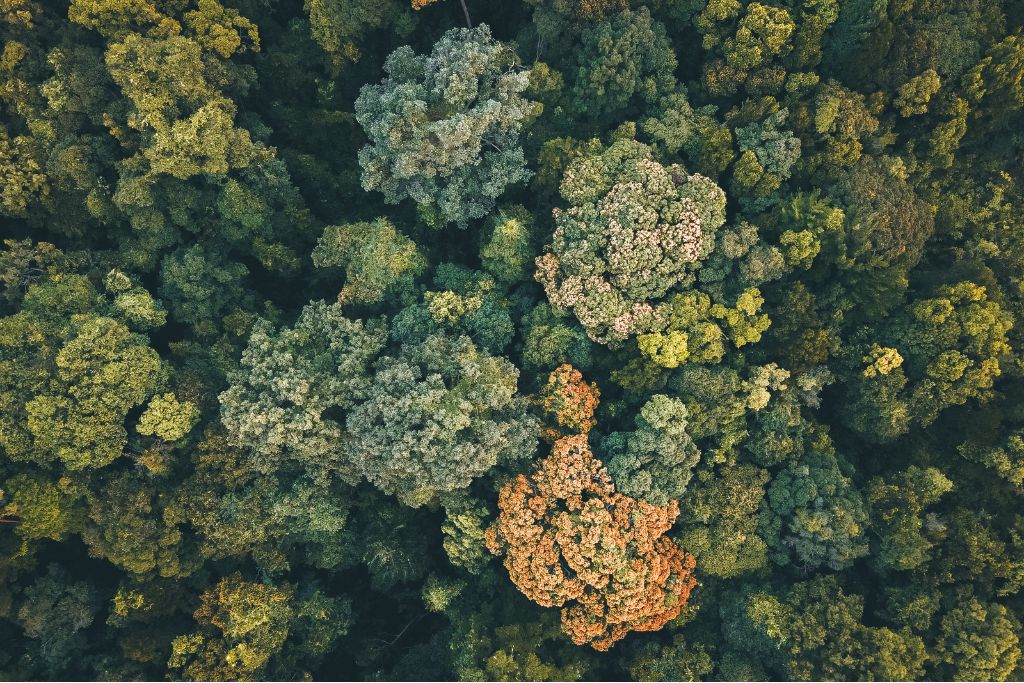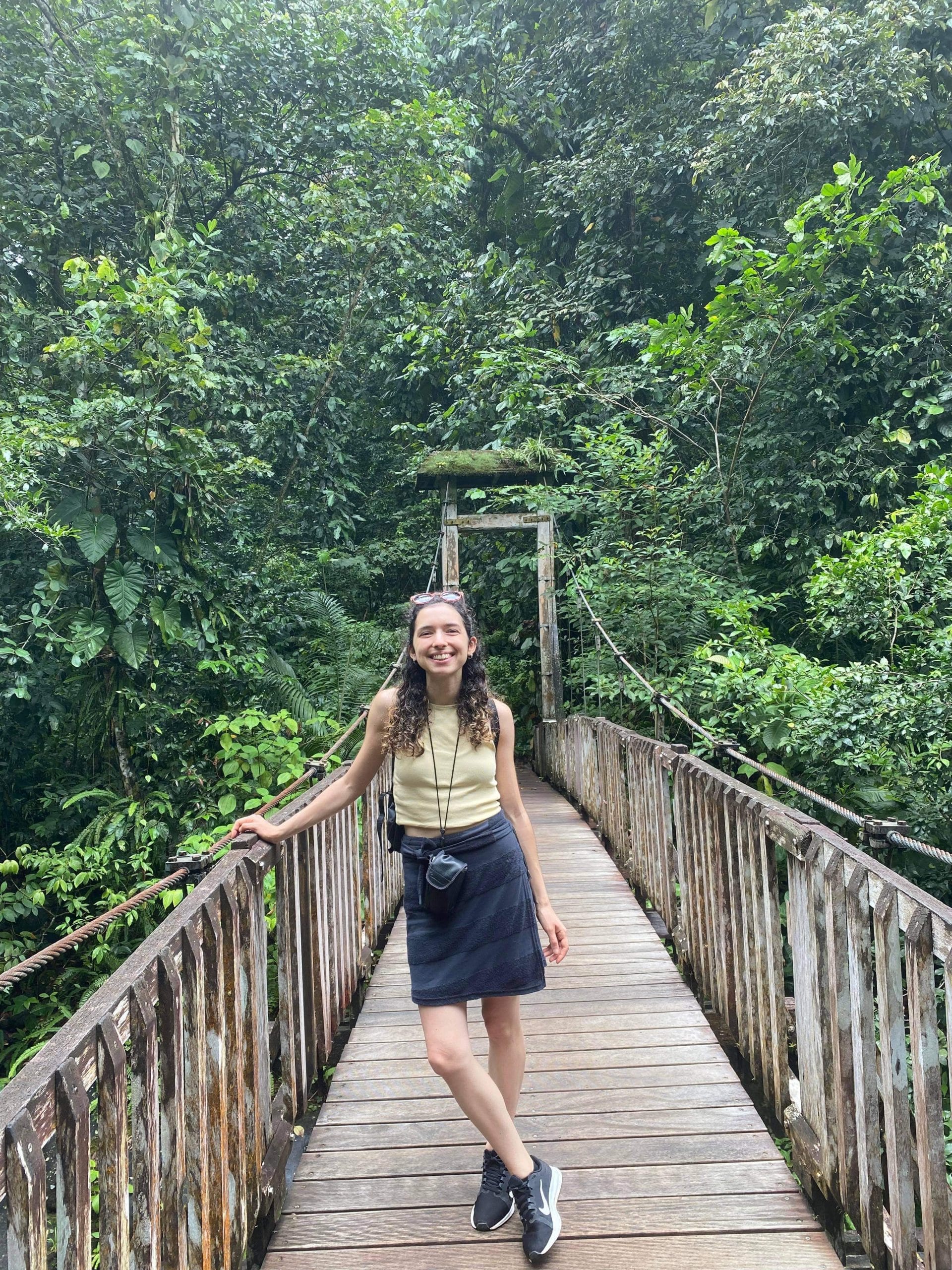In the mist of growing environmental actions and climate change mitigation promises, let us pause and reflect. What are we trying to protect? Has climate become the new focus, and plants been forgotten? The climate discourse has been diverging and distorted across the last decade. We need to remind ourselves of the true ecological crisis at stake.
—
Reading new releases in scientific research, I came across this new study. A scientific paper released December 2023 that compares a photovoltaic field to a forest in its ability to store carbon. The study concluded that, under arid conditions, a photovoltaic field is a better emission reduction solution than planting trees.
One of the main reasons for this is the fact that trees, although absorbing carbon dioxide (CO2), also absorb heat from the atmosphere, due to their low reflectance properties (also known as albedo). The study revealed that it would take up more than a decade of photosynthesis to compensate for the heat effect of planting trees. Meanwhile, it would take only two and half years for a solar farm to compensate for its heat emitted, thanks to the energy it produces.
I understood the point of the study: while it sounds promising, an afforestation project in the desert is both counterintuitive and counterproductive. If the goal is to cool down our planet, creating a photovoltaic field, in this case, would be more effective. Yet, if you ask me, covering a desert of silicon panels seems as intriguing as planting a forest on arid lands.
The concept was curious: comparing nature to technology. And yet, this approach is becoming increasingly common, in an era where fighting climate change is increasingly dominated by technological solutions and carbon capture has become one of the main subjects of discussion. We look at trees as carbon capture technologies. We forget that they breathe, live, die.
But there is more to it. As an ecologist and conservationist, my studies focused mainly on understanding living organisms, the way they interact with each other, and understanding natural cycles: the air, the wind, the soil, the water. Nature across scales. Lives across climates. Yet today, most of the discussion revolves around one component of this immense cycle: carbon dioxide. While the climate crisis must be tackled, and quickly, we must find a balance between focusing on CO2 and protecting ecosystems.
Aside from the intrinsic value of nature, whose beauty and curiosity are, according to me, worth saving, protecting ecosystems has a far greater reach. By saving plants, and the system within which they live, we save cycles. Water, energy, oxygen. The things that keep us alive, that regulate the Earth. What made the appearance of life possible in the first place. Care for nature is a need rather than an interest, since without it, we cannot exist. Yet we seem to forget it.
People are less and less connected to nature. Populations are increasingly living in urban areas and away from natural landscapes. Additionally, the political discourse around climate change emphasises on a purely technical focus: emissions, carbon, climate, temperatures. But the risk of simplifying the environmental crisis under these simple terms, often exasperated by media coverage, is to forget the systems within which climate is attached to, and forget why we are trying to regulate it in the first place.
The effect of climate change has been observed by scientists and ecologists for decades, raising concerns for the wellbeing of ecosystems. Yet this issue has now become a political matter, a growing concern not only for nature per se, but about the way in which nature can and will serve us: natural resources, ecosystems services. Perhaps a realisation that capitalism has driven us away from the land, a reminder that if the little green sprouts die, we will starve and die, too.
The climate change discourse has moved beyond our dependency over natural resources into re-questioning the organisation of our society as a whole. On a warmer planet, the marginalised will be further marginalised. The victims of our globalised economy will be the first one to suffer from rising sea levels, wildfires, droughts, and extreme weather events. An exacerbation of the inegalitarian society within which we are living. Maybe a realisation of the weakness of our system, that “growth” only means so little.
What surprises me even more is how we tend to entangle the climate discourse with the international development discourse. The “white saviour” comes back to the rescue by not only reducing emissions but also saving marginalised groups. We offer “clean cooking alternatives” to communities for which the bare necessities of societal needs are not being met, such as accessing health care and a secure access to food to feed the family. Why change the structure of our own energy systems in the western and wealthy world when we can save the poor and ask them to use renewable energy instead?
We become heroes. Yet trees are still falling, hunger is still spreading.
We cover the mould with paint to avoid dealing with the root of the issue.
Now coming back to solar panels versus trees in the desert. Both are nonsense. Think of preserving both the desert and the rainforest. Get the carbon capture, but also keep the hydrological cycle healthy, the rain falling in autumn, the freeze coming in winter, the beetles reproducing, the leaves breathing.
Think abundance, not scarcity.
We destroy trees to make money then spend money to build carbon capture technologies and climate mitigation plans, to replace the services that the trees were providing in the first place. We are stuck in a vicious circle and seem unable to pause it.
It is thus a matter of thinking further. Picture the whole ecosystem, not just the gas exchange. Think life, not degrees. Think people, not carbon.
You might also like: Nature Credits Can Succeed Where Carbon Capture Technologies Failed
This story is funded by readers like you
Our non-profit newsroom provides climate coverage free of charge and advertising. Your one-off or monthly donations play a crucial role in supporting our operations, expanding our reach, and maintaining our editorial independence.
About EO | Mission Statement | Impact & Reach | Write for us


















